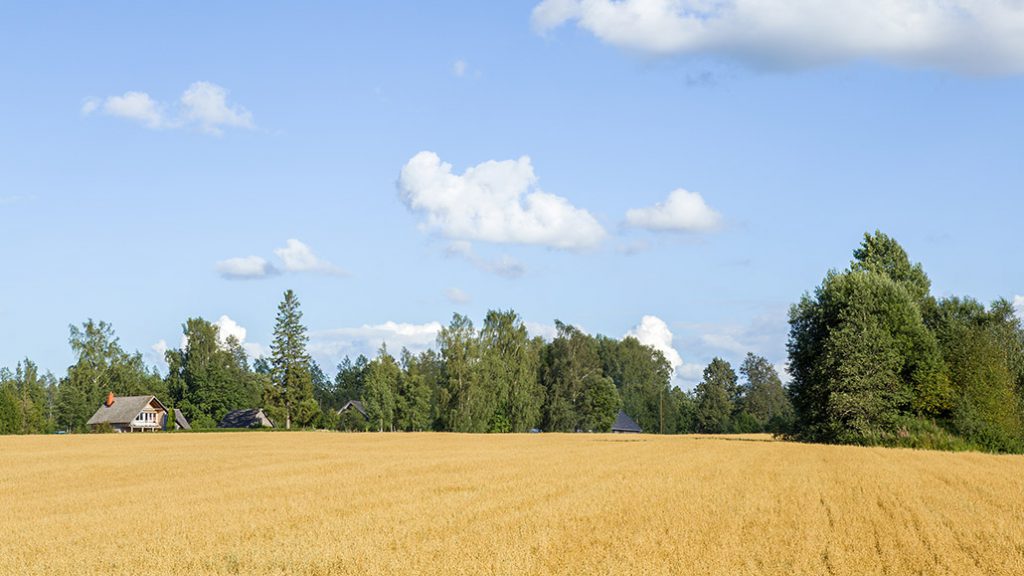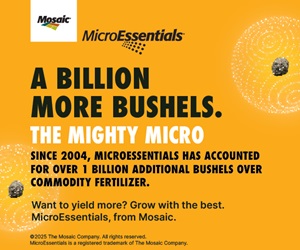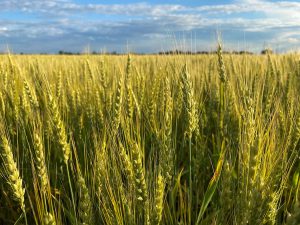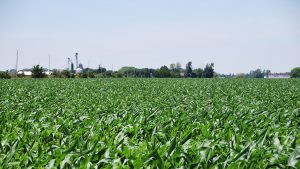Clean Fuel Regulations
WHAT IT MEANS FOR GRAIN FARMERS

OVER THE LAST three decades, grain farmers have increased land use efficiency by 39 per cent and reduced their climate impact by 45 per cent in corn production alone.
These are not small numbers.
Farmers have always been the planet’s best stewards of the land — they care about the earth and the climate; they need the soil, water, and air healthy in order to keep their businesses afloat.
Since the publishing of the proposed Clean Fuel Regulation (CFR) in the Canada Gazette, Grain Farmers of Ontario has been working to seek clarification and better understand the impacts of these regulations on our farmer-members and their operations, especially in the land use and biodiversity criteria, ethanol mandates, and carbon areas.
Currently, about 33 per cent of Ontario corn is used for ethanol production.
The goal of the CFR is to help Canada lower its emissions, specifically lower emissions in the transportation sector in Canada. It applies to imported or domestically produced fuels. Meaning any fuel that is consumed in Canada must follow the CFR. However, if it is not used in Canada, it would not face these regulations.
The main concerns with the CFR as it is proposed are understanding how the policy is laid out, what compliance will mean to farmers and feedstock production, and whether it will be beneficial to the production of biofuels in Canada.
Although an increase in demand for corn and soybeans would have potential benefits for Grain Farmers of Ontario farmer-members, there remain too many areas of uncertainty and potential pitfalls for farmers at this point.
INCREASED COSTS
This regulation has one clear impact on Grain Farmers of Ontario farmer-members — it will raise costs of diesel and gas, which translates into higher on-farm costs.
“The Federal government’s own analysis shows that the CFR will increase the cost of gasoline in 2030 by four to 11 cents per gallon, increase diesel by six to 13 cents per gallon. They also show a small negative hit to Canadian agricultural GDP because of the overall impact of the regulation. However, the Government admits that this model has been greatly simplified in that it assumed all biofuel growth will be fulfilled by imports. We know this is unlikely to be the case and that Canadian biofuel production will actually increase with the right policies in place,” says Paul Hoekstra, vice president, Strategic Development for Grain Farmers of Ontario.
LAND USE AND BIODIVERSITY CRITERIA
There are four main areas in the land use and biodiversity (LUB) criteria of the CFR: Protected Areas, Indirect Land Use Change, Cultivation/ Harvest/Transport, and Excluded Land. Under the current proposal, these criteria would come into effect on January 1, 2023 and declarations and on-farm audits will be required for some criteria.
Protected areas — crops cannot be grown/ harvested in areas designated as protected for rare, vulnerable, or threatened species
Cultivation/Harvest/Transport — crops must be grown in accordance with applicable legislation, including legislation related to the prevention of invasive species
Indirect land use change — crops are not eligible if average annual expansion of production area since 2008 exceeds one per cent and the share of expansion into land exceeds 10 per cent This criterion is dated to March 2019 and, at that date, only applies to palm
Excluded land — crops are not eligible if they come from land containing more than one hectare that on or after July 1, 2020 contained trees five metres tall, was a wetland, was a grassland (considered land that has not produced crops for 10 years or more), or was in a riparian zone (30 metres from a stream of three metres or lake or wetland greater than five hectares)
Canadian farmers are deemed compliant for “Excluded Lands” through an aggregated model approach that allows compliance with the U.S. Renewable Fuel Standard to stand.
However, farmer-members are not deemed automatically compliant on the protected areas and cultivation/harvest/transport criteria. The process for verification of compliance is still being determined, but farmers would need to be compliant through some form of declaration. Grain Farmers of Ontario is working hard to ensure that there are no declarations for farmers anywhere.
TRADE IMPACTS
Grain Farmers of Ontario is also concerned about the potential trade impacts that the CFR, and the LUB criteria, presents for farmers. Corn imported from the United States would also be subject to the same declaration of compliance that domestic corn will face, and this could create an irritant to our largest trading partner.
One of the changes made to the CFR after input from Grain Farmers of Ontario was to have the EPA compliance under its Renewable Fuel Standard program be the benchmark for approval under the CFR.
Under this system, Canadian and U.S. corn and soybeans are deemed sustainable and Canadian farmers are not required to complete declarations or site verifications to access this market. By comparison, the proposed CFR creates a situation where corn and soybeans produced in Canada would be considered sustainable in the United States, but those same commodities grown in the U.S. may not be considered sustainable in Canada, and thus, not eligible for the same biofuels markets. Grain Farmers of Ontario is concerned that placing unnecessarily strict requirements on U.S. products coming into Canada when the U.S. offers Canadian commodities unfettered access to their market will provoke trade retaliation and put billions of dollars of cross border trade at risk.
Grain Farmers of Ontario has put together comments for Environment and Climate Change Canada (ECCC) asking what that declaration would be. We are pushing for less paperwork for our farmer-members and to streamline the compliancy process to make things easier on our farmer-members.
The Clean Fuel Regulation has the potential to be good for Ontario and Canadian farmers, provided the government implements the changes that Grain Farmers of Ontario is pushing for. If implemented correctly, the CFR would create and open more markets for Ontario corn here in Canada. Long term, there is potential for increased domestic ethanol production and facilities, market maintenance, as well as the potential expansion for biodiesel.
Grain Farmers of Ontario is asking the government to recognize the legislative
and regulatory frameworks that are already in place that address the components of the land use and biodiversity criteria. We need to ensure that there is no unnecessary red tape for farmers and those in the grain trade.
The comment period for the Clean Fuel Regulation closed in early March. Developments on this regulation may have occurred after press time. Please go to www.ontariograinfarmer.ca for updates. •




















